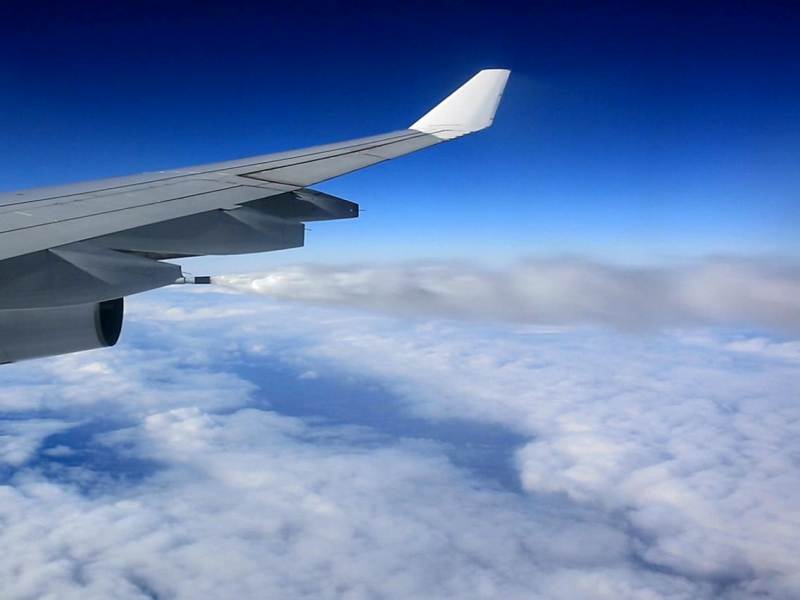Emitting carbon comes naturally with most productive tasks. Giant manufacturing conglomerates produce several tonnes of carbon each day. Similarly, the transport industry also has to commit the necessary evil to thrive. For an industry fundamentally run on carbon, aviation offers promising sustainable potential for the future.
1. Jet Charter passengers are unaware of carbon offsetting

Surprisingly, 69% of average air passengers in 2020 do not know about offsets. Most sustainability programs interest only 10% of air travel clients. [1] Ignorance is usually bliss but not today. There have been multiple cases of wildfires throughout the globe in recent years. Even the Amazon rainforest fell victim to global warming. Carbon offsets provide a measure to diminish the adverse effect of carbon on world temperature.
The mechanism ensures that global CO2 levels stay within an aggregate limit. Some industries produce a ton of greenhouse gases (GHG) while some do not. Compare aircraft travel with grassland regeneration as an example. GHG emitted by aviation is 19 times greater than grassland agriculture. [2]
Plant-based sectors hardly produce harmful gases, meaning grassland businesses don’t come close to crossing the carbon limit. Their leftover limit is converted into carbon credits. These credits are sold to companies bound to go past their carbon boundaries. Airplane fuel emissions push past the accepted range of CO2 production. After private jet charter companies buy the carbon credits from forestry, each charter flight offsets the system. It keeps the worldwide GHG volumes within the designated threshold.
2. Evolving passenger perceptions – the generation shift
Only 25% of millennials earning USD 100K+ revealed that they purchase their luxury services from companies and brands which promise to safeguard the environment. [3] The other 75% care less. However, more than 45% of Generation Z cites engaging only with environment-building brands in five years. Generation gaps set a dynamic tone to the nature of the consumer approach for luxury travel in the coming years. Private jet charter is set to evolve as Gen-Z takes over the client base soon.
Research indicates that while judging their options, passengers focus on the location of the NPOs helping to offset their footprint. Domestic forestry organizations are significantly favored over international ones. Patriotism runs deep in us all. Interestingly, the purpose of the NPOs matters less than a lot of other factors. Passengers do not desire to encourage a specific cause but rather to reduce their guilt. Jet charter clients are busier with business deals.
3. The debate on inherent intentions

Individuals who endorse biospheric values reported experiencing a persistent feeling of guilt even after the introduction of carbon offsetting. Researchers theorize that this may be due to their mistrust of particular organizations. [4] They only choose to fly on private jets when presented with no viable alternative. Why does this system not seem to work every time?
Since the Kyoto Protocol, different global forums have tried to enforce ways to combat global warming. Carbon credits are exchanged in marketplaces. The theory introduces an economic aspect to protecting the environment instead of endorsing the decreased use of nonrenewable fuel. Reducing emissions no longer remains the principal focus. Companies do not come up with innovative methods to stunt GHG levels anymore. They simply buy the carbon credits from the market. Amid the process, intentions seem blurred.
4. Alternatives will take time

Frequently studied alternatives to jet fuel include electro-fuels, biofuels, and hydrogen. These methods embrace the environment lovingly. Their benefits far exceed those of the marvelous innovations of the past. However, each of these comes with challenges that may take decades to overcome. Biofuels are in sparse supply while electro-fuels require stable electricity generation, driving up price quotes by 40%. Introducing hydrogen as fuel would probably consume ample time. A restructure of the entirety of aircraft fleets worldwide is not exactly possible. However, Airbus and Boeing are reported to introduce models run on sustainable aviation fuel (SAF) in the next decade. Soon, private jet aircraft will change as world needs develop.
The Carbon Offsetting and Reduction Scheme for International Aviation (CORSIA) was adopted by ICAO in 2016. Since then, SAF only amounts to 0.1% of the fuel supply in 2021. The target set through CORSIA is to halve the 2005 level of emissions by 2050. Even though COVID-19 reduced aviation emissions by 48%, it can hardly be called collateral advantage. Aviation is still predicted to overtake 22% of the world’s carbon contribution by 2050. [5]
Contact Icarus Jet at +1-888-277-7203 or email us at info@icarusjet.com to rent your next jet charter flight.




